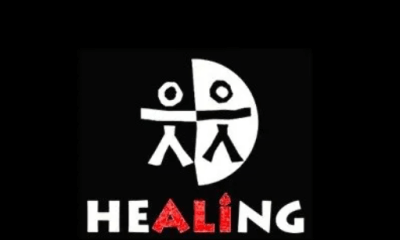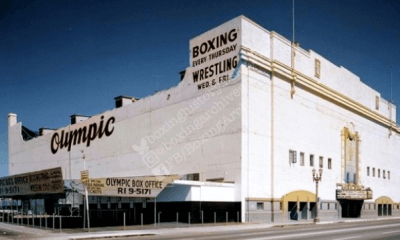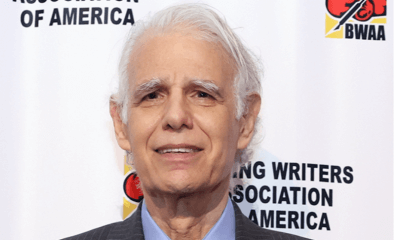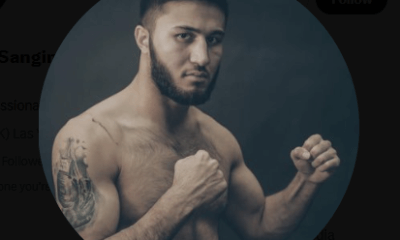Canada and USA
What If Muhammad Ali Had Never Boxed?
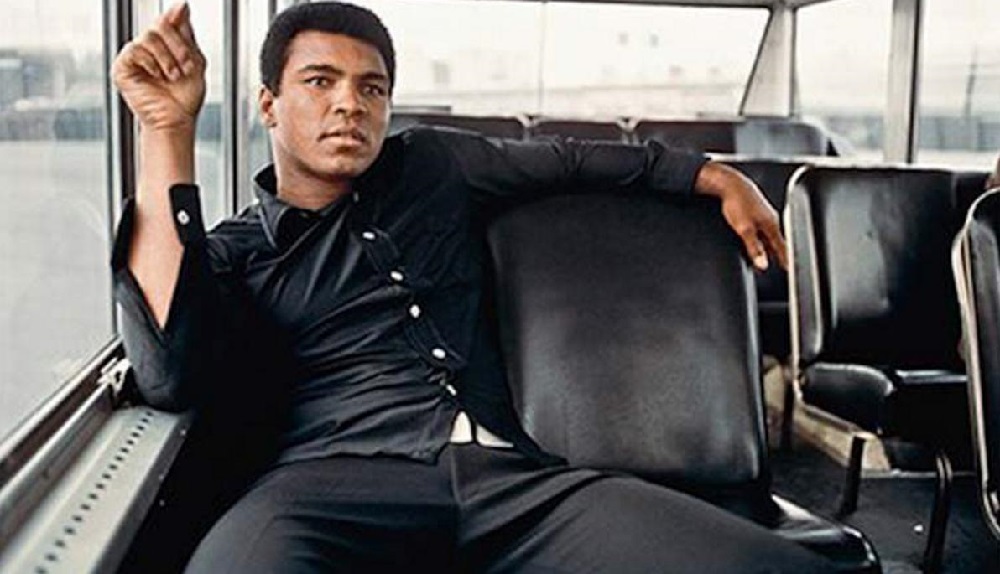
Muhammad Ali – The childhood home of Muhammad Ali was opened to the public over the Memorial Day weekend. For $8 one can walk throughout the restored one story pink home where Ali lived from 1947 until 1961. Playing on a 60-inch screen TV in the back room are about 15 minutes of video including one that features Ali’s brother, Rahman Ali, sharing childhood memories of his brother and the Grand Avenue home.
Just about everyone in boxing has been influenced in one way or another by Ali. I first became aware of him through his Saturday morning cartoon. When I was about six, my father bought me a rock’em sock’em type of game featuring Ali and Ken Norton. When I met him some 15 years later, I could only say one word while I shook his hand.
It was at a parade along Fifth Avenue one summer in New York. He walked over to where we were and stood behind us to catch a glimpse of the parade as it passed by. I turned around and he raised his finger to his lip and asked me not to say anything before shaking my hand. Within seconds everyone in the area noticed he was there.
The parade came to a stop. Those on the floats got off and rushed over in their fancy dresses and parade costumes to snap pictures with him while the crowd chanted his name. The two or three plain clothed cops who were with him waived off the crowd and escorted him away. It seemed Ali did not want to go.
His influence reaches further than perhaps any other athlete. It is hard to imagine how the sport, and the world, would be if Ali had never boxed. What if his bicycle wasn’t stolen that day and 12-year-old Cassius Clay rode his bike back to his home at 3302 Grand Avenue instead of bumping into his first trainer, patrolman Joe Martin?
For starters, Sonny Liston would likely have been champion until he either retired or lost to age. Liston looked invincible in 1964 and none of the leading contenders seemed to pose a threat to him. That year Doug Jones would have likely gotten the title shot. The following years, Sonny would probably have fought the same group that Ali defended against except, perhaps, Floyd Patterson. It’s doubtful Mildenberg, London, or Henry Cooper would’ve beaten Sonny. Folley, Terrell, and Williams had already lost to Liston and George Chuvalo would have had a hard time avoiding Sonny’s jab often enough to win. By 1968, Sonny would have been able to walk away from the game with a ring reputation that might have exceeded those of Joe Louis and Rocky Marciano. His life no doubt would have been different and likely to have been free of the turmoil he faced in the end.
If Liston didn’t retire, only Joe Frazier seemed likely to beat him. And that probably wouldn’t have happened until 1969 or 1970. If Liston retired, Frazier’s big moment would have come only if Liston made a comeback- say around March 1971. Instead of Ali coming back to reclaim his throne, it’d be Liston in the other corner.
If Liston didn’t make a comeback, no one else had the appeal for a mega fight against Frazier in 1971. There would not have been a super fight for drug kingpin Frank Lucas to attend and show off his $100,000 chinchilla coat with matching $25,000 hat while sitting amongst Barbara Streisand, Frank Sinatra, and Spiro Agnew.
Lucas would’ve still had his drug empire and Frazier would be champ until George Foreman came along in 1973. Foreman’s reign would last until the mid-seventies and it would not have had any Thrillas or any Rumbles. There would be wins over Norton, Lyle, and a rematch over Frazier. Chuck Wepner would not have gotten a title shot in 1975 and a struggling actor with film making aspirations named Sly would not have had the inspiration to make a boxing film about a journeyman heavyweight named Rocky challenging a fast talking and fast moving champion named Apollo.
Instead of making a series of boxing movies and a couple of action flicks about a Vietnam veteran, Sly would have still been lining up for bit roles on Kojak.
Jimmy Young, without Ali possibly the finest boxing heavyweight of the decade, would end Foreman’s reign sometime during 1977. Norton, just another contender rather than the man who broke the jaw of the greatest, would lose the title quickly. It might have been to Earnie Shavers since, without Ali, there’s no telling what would have happened to Larry Holmes.
Coming up on Ali undercards and getting his education as the champ’s sparring partner, Holmes may have ended up in Joe Frazier’s camp fighting gym wars on Broad Street. And he would’ve had a different promoter.
Without Ali, Don King may not have gotten into boxing. Through a mutual acquaintance and with the help of promoter Don Elbaum, King met Ali and had him box in an exhibition for charity. The rest, as they say, is history. And without that connection, Don King’s entry into boxing may have been blocked. Along with King’s blocked entry would be that of the alphabet belts too.
Outside of the heavyweights, there were no American boxing champions during the 1970s. King hatched a plan to bring back the “American” championships. To add authenticity to the endeavor, he made an arrangement with Ring Magazine editor John Ort. The trouble was, only fighters promoted by King were eligible to win the “championships” and the ratings of Ring Magazine were compromised. Records were fabricated and judges handed in cards that were blatantly wrong.
When the dust settled, King emerged unscathed and promptly went about establishing a favorable relationship with the then not yet widely accepted WBC. Shortly after “titles” were stripped and awarded to King fighters and the term “sanction fee” became part of the boxing vernacular. Seeing how easy it was for the WBC to rise to notoriety, other organizations sprung up and within the following 11 years, there were a total of four “titles” going around.
Coming out of the Olympic class of 76 was a welterweight with a flashy style and even flashier smile. The perfect trainer for the skills possessed by Sugar Ray Leonard had to be someone who worked with a similar bright star. Angelo Dundee proved to be the perfect complement. But would he have been on Leonard’s radar if not for Ali? After Pastrano and Rodriguez, its possible Dundee would have faded from the spotlight.
Howard Cosell would have been less known, Malcolm X would have gotten a little less press, Vinny Pazienza would not have gotten into boxing, the Boxing Reform Act might not have passed, Mike Tyson may never have met Don King and there would be about 1,000 less books written.
No doubt the world would be a vastly different place if Ali never boxed. I could write an entire book on how different it would be. A very large book. Which is ironic since the one time I met him I could only say one word.
With a wide eyed and incredulous look on my face and a massive hand shaking mine, all I could say was “Ali.”
Editor’s Note: Jose Corpas’ second book, a biography of Panama Al Brown, will be released next month by Win by KO Publications. Titled Black Ink: A Story of Boxing, Betrayal, Homophobia, and the First Latino Champion, the book has a forward by Springs Toledo.
Read author Thomas Hauser’s poem paying homage to the legendary Ali.
-

 Featured Articles3 weeks ago
Featured Articles3 weeks agoThe Hauser Report: Cinematic and Literary Notes
-

 Featured Articles4 weeks ago
Featured Articles4 weeks agoOscar Duarte and Regis Prograis Prevail on an Action-Packed Fight Card in Chicago
-

 Book Review3 weeks ago
Book Review3 weeks agoMark Kriegel’s New Book About Mike Tyson is a Must-Read
-

 Featured Articles1 week ago
Featured Articles1 week agoThe Hauser Report: Debunking Two Myths and Other Notes
-

 Featured Articles2 weeks ago
Featured Articles2 weeks agoMoses Itauma Continues his Rapid Rise; Steamrolls Dillian Whyte in Riyadh
-

 Featured Articles4 weeks ago
Featured Articles4 weeks agoRahaman Ali (1943-2025)
-

 Featured Articles4 weeks ago
Featured Articles4 weeks agoTop Rank Boxing is in Limbo, but that Hasn’t Benched Robert Garcia’s Up-and-Comers
-

 Featured Articles3 weeks ago
Featured Articles3 weeks agoKotari and Urakawa – Two Fatalities on the Same Card in Japan: Boxing’s Darkest Day


